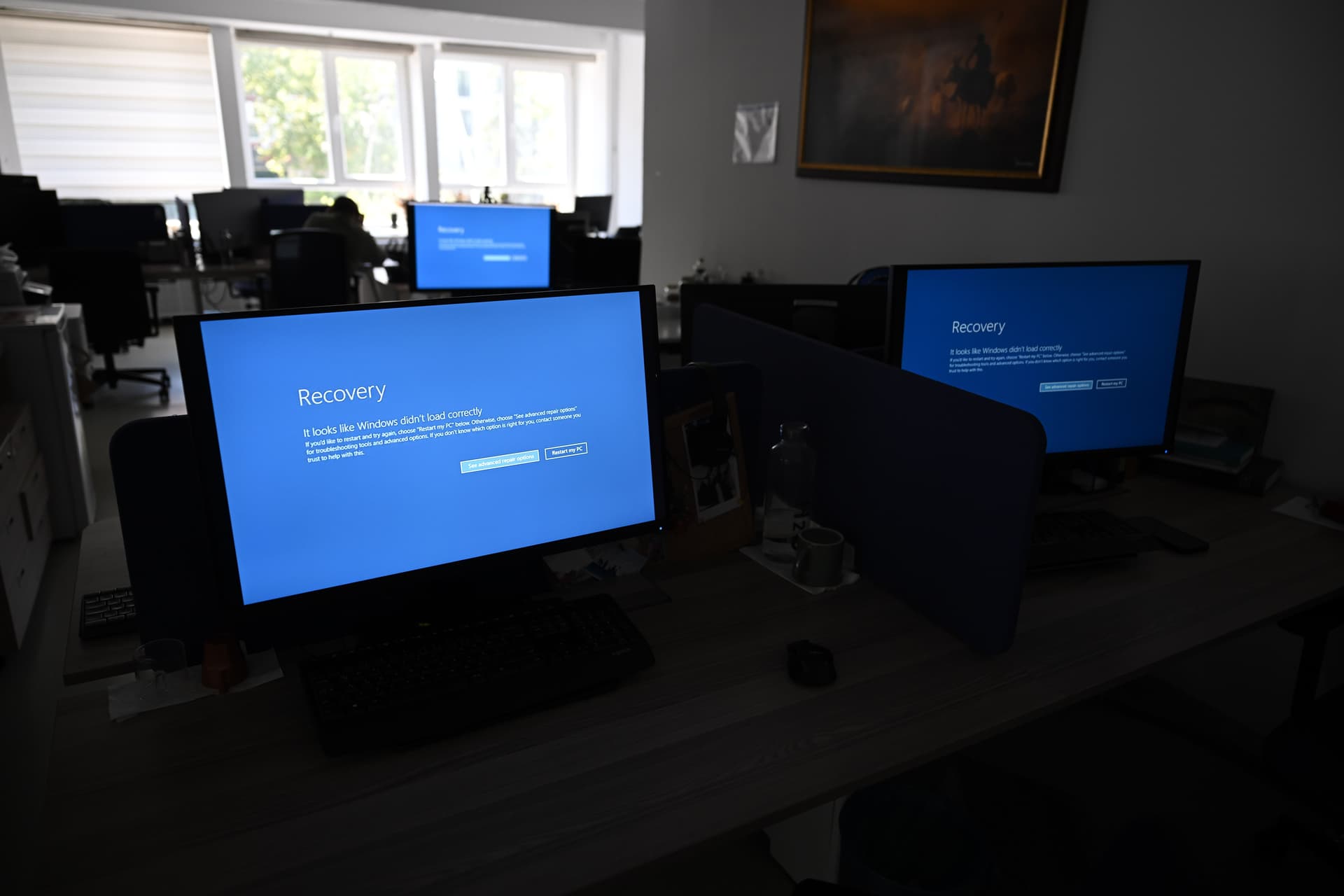CrowdStrike outage reminds HR and payroll pros on importance of plan B
HR can take steps to mitigate payroll issues amid another crisis.

Anadolu/Getty Images
• 4 min read
Adam DeRose is a senior reporter for HR Brew covering tech and compliance.
Last week CrowdStrike’s global IT outage crippled airlines, banks, and healthcare systems, becoming the world’s largest-ever IT failure. Terminals and computer monitors at workplaces across the planet donned the infamous “blue screen of death,” and some payroll admins and HR pros were sent scrambling to make sure employees were paid.
Fran Williams, the senior product director of payroll and managed services at the UK-based IRIS Software Group, told HR Brew that outage was especially difficult for smaller companies with limited personnel who touch payroll systems, those with smaller budgets, or those with older, on-premise payroll solutions.
The CrowdStrike outage served as an unmistakable reminder that, when it comes to payroll, it’s important to have a contingency plan. Williams said HR leaders who haven’t done so already should audit their process and create a plan B to protect employees in the future.
“Walk through your end-to-end payroll process and understand who are the constituent players, and what are the technologies as part of that process, and work out if one of those elements…fails, what would you do,” he said.
Williams, who oversees IRIS’s global and UK-based payroll products and services, said the outage created more issues for small- and medium-sized businesses, or those without robust (and cloud-based) payroll solutions.
Payroll solutions in the cloud fared better, as the software could be accessed from other devices, such as Macintosh computers, Windows devices not connected to a Microsoft-run network, or those outside the outage.
Companies that moved their payroll to the cloud were able to manage better during the outage. They could use personal devices or other unaffected computers to process payroll, he said.
He also suggested that, in the event of an outage, colleagues in IT can prioritize payroll issues among the top business-critical needs.
Another backup plan can simply involve bringing additional people and equipment into the process so payroll isn’t a single point of contact solution. This can help to make sure payroll can still be processed even if a payroll admin is unable to perform those duties or there’s an equipment failure.
Some payroll solutions offer services to run payroll in an emergency, he noted.
Quick-to-read HR news & insights
From recruiting and retention to company culture and the latest in HR tech, HR Brew delivers up-to-date industry news and tips to help HR pros stay nimble in today’s fast-changing business environment.
HR also must consider a communications plan in the event of an outage. It’s important to keep employees informed of what’s happening, but when and how you deliver that message is equally as important.
“You’ve then got to think about employees and what to tell them. Rushing to tell them there’s an issue too quickly is a challenge. You’ve got to work out when’s the appropriate time to communicate with them,” Williams said.
Finally, as a last resort, run the previous payroll, he suggested. Work with the finance department or the team that cuts the checks and reprocess the previous payroll to ensure employees—up to 65% of whom live paycheck to paycheck in the US, according to a recent CNBC survey—get paid, and resolve any discrepancies in the next pay period.
“If you can’t access your payroll system, and your employees are at risk of not…having money in the bank, you only really got one option,” he said. “At least that way, you’ve made sure that people can buy food and pay their rent and or pay their mortgage and all that.”
Communicate that necessary adjustments will be recalculated once the issue has been resolved, he added.
Zoom out. Early in the Covid-19 pandemic, offices abruptly closed, and across the globe payroll pros were tasked with figuring out how to make sure employees still got their paychecks when they didn’t have access to their workstations.
“Covid was the thing that kind of taught us that if we’re locked out of offices, people need to get paid, and payroll...ensured that businesses survived,” he said. “That taught us that it’s a pandemic, an IT outage, or who runs payroll gets, unfortunately, run over by a bus, you need a backup plan.”
The pandemic should have instigated a process to identify a plan B in case of future disruptions.
“You should write down the backup plan. You should probably run through a couple of different scenarios…and practice it, and then document it and revisit it on an annual basis,” Williams said.
Quick-to-read HR news & insights
From recruiting and retention to company culture and the latest in HR tech, HR Brew delivers up-to-date industry news and tips to help HR pros stay nimble in today’s fast-changing business environment.